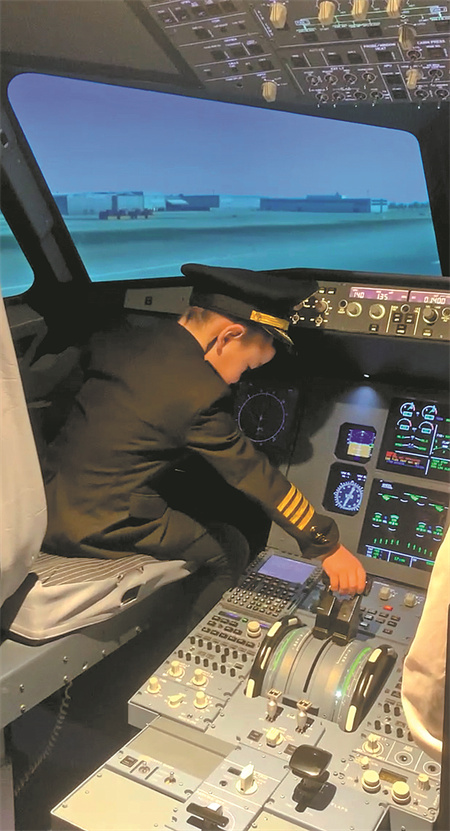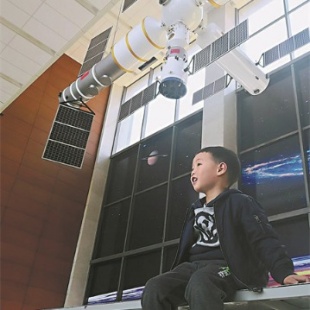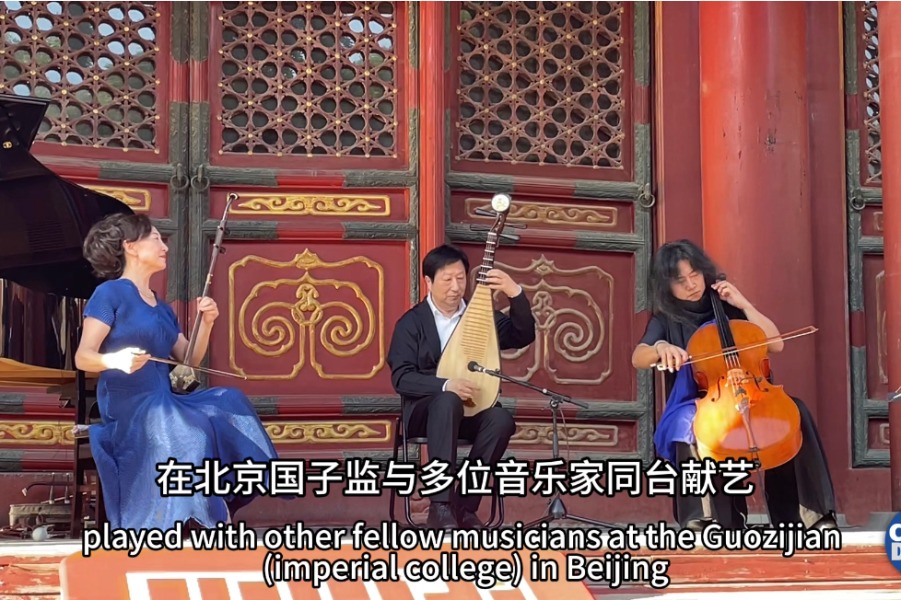Dream of astronautics rooted in kids' hearts


Crowded exhibits
The exhibits in the Beijing Planetarium, for example, are designed in such way so that visitors can obtain knowledge logically along the way. Upon entry, there are models of the solar system, including the Sun and the eight planets, where visitors can get to know the planet where we live on and the star that we depend on for life.
Following this is an introduction to the deeper universe, where the Horsehead Nebula, the spiral galaxy and the Pleiades are printed on the wall.
Then are introductions to stars and planets outside the galaxy and some basic concepts, such as the gravitational lens that make humankind's space travel more convenient. At the China Science and Technology Museum (CSTM), there are life-size models of spaceships that enable humankind to travel into space. Visitors can go in and experience traveling among the stars. "I think I can drive a real spaceship when I am grown up, I am ready!" said Wang Chuwei, a 9-yearold boy, upon coming out of the animated driving cabin.
Elsewhere, and for a more historical perspective, there is the Ancient Observatory of Beijing, which was built in 1442 and served the Ming and Qing dynasties (1368-1911).There are eight astronomy observance devices made of bronze in the yard, plus exhibition materials of ancient astronomy in China.
"The starry night is attractive because of its infinity. Just think about the fact that there are more stars (in the universe) than if there were a 10-meter-thick layer of sand particles covering the whole surface of the Earth," said Zhou Binghong, a professor at the China Academy of Space Technology. "It is out of one's instinct to look deeply into the starry night."
Zhou also said that by popularizing astronautic science for children, those with the ability and interest can be selected to learn in that sector, thus getting the best talent working in the fierce contest of space technology. "When people realize they are working for the whole of humankind's journey into the universe, they will work with enthusiasm from the heart, which is irreplaceable," he said. "It is that enthusiasm that supports humankind's development into space."





































